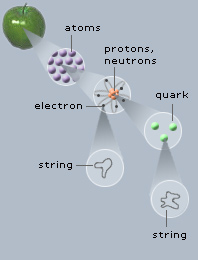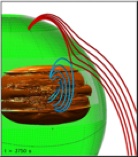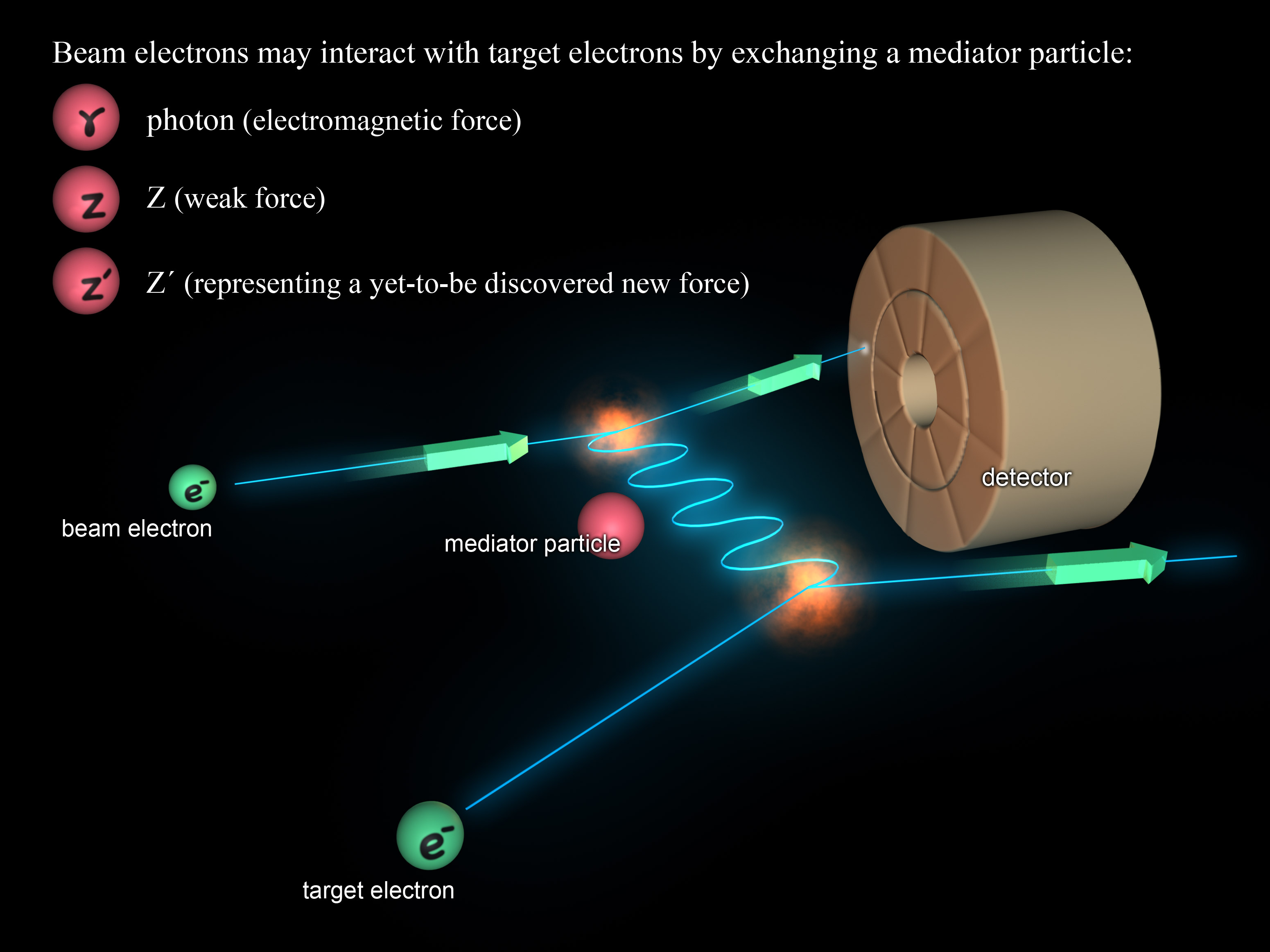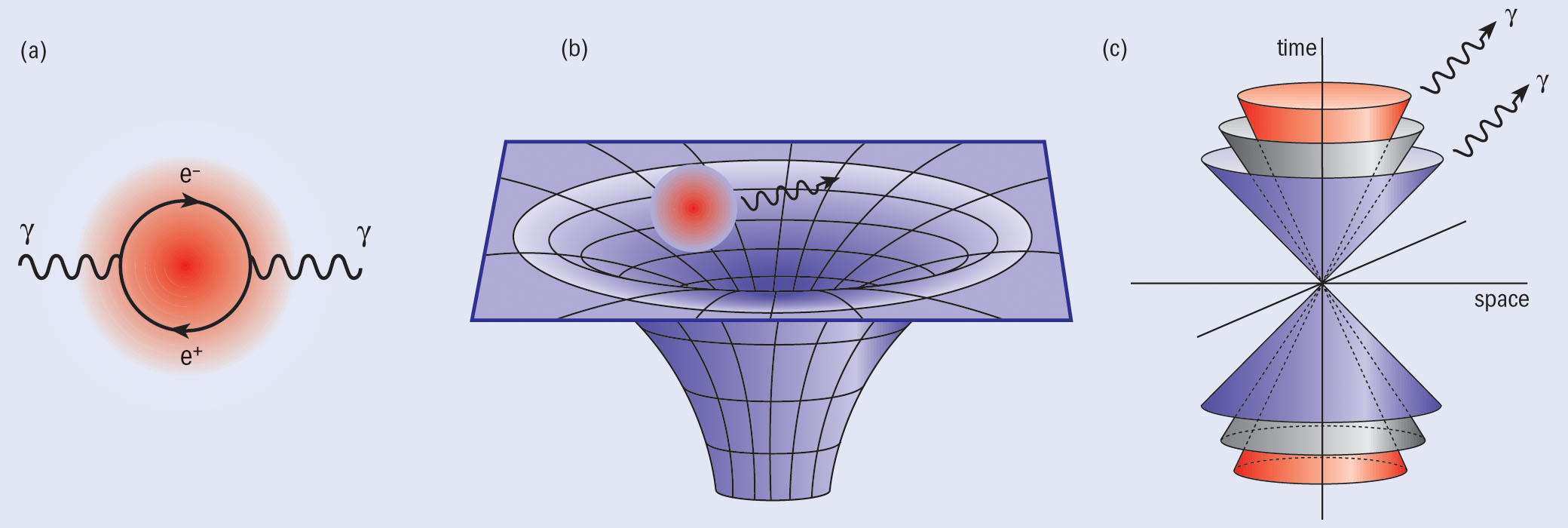"Make everything as simple as possible, but no simpler" - Einstein



Feynman Page
My favorite physicist is Feynman because he was full of life, not just physics. He had elegant thoughts but was able to explain things in a simple way. I read all his books and enjoy the stories about him.October 17, 1946
D'Arline,
I adore you, sweetheart.
I know how much you like to hear that - but I don't only write it because you like it - I write it because it makes me warm all over inside to write it to you.
It is such a terribly long time since I last wrote to you - almost two years but I know you'll excuse me because you understand how I am, stubborn and realistic; and I thought there was no sense to writing.
But now I know my darling wife that it is right to do what I have delayed in doing, and that I have done so much in the past. I want to tell you I love you. I want to love you. I always will love you.
I find it hard to understand in my mind what it means to love you after you are dead - but I still want to comfort and take care of you - and I want you to love me and care for me. I want to have problems to discuss with you - I want to do little projects with you. I never thought until just now that we can do that. What should we do. We started to learn to make clothes together - or learn Chinese - or getting a movie projector. Can't I do something now? No. I am alone without you and you were the "idea-woman" and general instigator of all our wild adventures.
When you were sick you worried because you could not give me something that you wanted to and thought I needed. You needn't have worried. Just as I told you then there was no real need because I loved you in so many ways so much. And now it is clearly even more true - you can give me nothing now yet I love you so that you stand in my way of loving anyone else - but I want you to stand there. You, dead, are so much better than anyone else alive.
I know you will assure me that I am foolish and that you want me to have full happiness and don't want to be in my way. I'll bet you are surprised that I don't even have a girlfriend (except you, sweetheart) after two years. But you can't help it, darling, nor can I - I don't understand it, for I have met many girls and very nice ones and I don't want to remain alone - but in two or three meetings they all seem ashes. You only are left to me. You are real.
My darling wife, I do adore you.
I love my wife. My wife is dead.
Rich.
PS Please excuse my not mailing this - but I don't know your new address.
Generating Anecdotes
Almost without
fail, whenever Feynman's name came up in private conversation, Murray Gell-Mann would
inevitably remark, He's always concerned with generating anecdotes
about himself. In fact, there was some truth to Gell-Mann's remarks. On
one occasion Feynman and I attended a physics lecture by a visiting
professor. We got there early and took the front row seats. Feynman
noticed that the lecturer had left his notes on the seat beside him.
Feynman proceeded to look through the notes, and I could see that he
was registering what he was reading. He put the notes back down and the
professor came back in. During the course of the lecture, the professor
stated, I have spent a considerable time working out the derivation of
this particular formula... Feynman stated, Ahh, the solution is
obvious! It's..... The professor, and the rest of the audience for that
matter, was dumbfounded as Feynman, who appeared to be giving an answer
off the cuff, gave the solution. As we left the lecture, I turned to
Feynman and gave him a knowing look. He smiled back.
Once we were
talking about
the supernatural and the following anecdote involving his first wife
Arline came up. Arline had tuberculosis and was confined to a hospital
while Feynman was at Los Alamos. Next to her bed was an old clock.
Arline told Feynman that the clock was a symbol of the time that they
had together and that he should always remember that. Always look at
the clock to remember the time we have together, she said. The day that
Arline died in the hospital, Feynman was given a note from the nurse
that indicated the time of death. Feynman noted that the clock had
stopped at exactly that time. It was as the clock, which had been a
symbol of their time together, had stopped at the moment of her death.
Did you make a connection? I asked NO! NOT FOR A SECOND! I immediately
began to think how this could have happened. And I realized that the
clock was old and was always breaking. That the clock probably stopped
some time before and the nurse coming in to the room to record the time
of death would have looked at the clock and jotted down the time from
that. I never made any supernatural connection, not even for a second.
I just wanted to figure out how it happened.
Feynman and I
would sometimes
go camping together. On these occasions he would drive his van, which
had Feynman diagrams painted all over it and a license plate that said
Quantum. (Murray Gell-Mann had a license plate that said Quarks.) I
asked Feynman if anyone ever recognized the diagrams. Yes. Once we were
driving in the midwest and we pulled into a McDonald's. Someone came up
to me and asked me why I have Feynman diagrams all over my van. I
replied, 'Because I AM Feynman! The young man went "Ahhhhh....."
On another
occasion I was
with both Gell-Mann and Feynman and the subject of kooky letters and
phone calls came up. Feynman started relating the story of how one
crazy woman called the office about some ridiculous theory of magnetic
fields. He just could not get her off the phone. Gell-Mann responded,
Oh, I remember that woman. I got her off the phone in less than a
minute. How'd you do that? Feynman asked. I told her to call you. That
you were the resident expert in the topic!
One thing that
Feynman did
not suffer gladly was fools, especially smart fools. He was very
tolerant of those who could not understand, but extremely intolerant of
those who refused to understand. One day a physicist friend of mine Ron
Unz asked if he could be introduced to his hero - Richard Feynman. Ron
had an impressive list of credentials behind him - winner of the
prestigious Westinghouse Science Award, degrees from Harvard and
Cambridge, and a former graduate student of Steven Hawking. (A little
aside, Ron was later to briefly gain some fame after he became a
multimillionaire and ran briefly against Pete Wilson in the race for
the California Senate). In addition to Ron's impressive credentials, he
had developed a rather controversial theory that charge was not
conserved. He had published a paper about it in Physical Review and he
wanted to discuss his idea with Feynman. I agreed to invite him to one
of our private lunch sessions. On the day in question, Ron made a
terrible mistake. First of all he showed up in a suit. That was certain
to give a bad impression to Feynman. Then I made a mistake, I spilled
the beans to Feynman just before lunch about Ron's ideas. Feynman
roared, and declared that he would refuse to eat with anyone that
stupid. Feynman turned and walked away. I went back to Ron and told him
what had happened. Ron was terribly disappointed, but I told him that I
would persist. I went back to Feynman and convinced him to still have
lunch with us. Feynman said, Ok, as long as we don't talk physics. I
don't want to hear anything about it. So I got Ron to join us. No
sooner than five minutes into the conversation, Feynman turns to Ron
and says, OK, what's this dopey idea you have in physics? Ron, who is
an extremely confident guy, turned and started to explain his theory.
Feynman, booming loudly declared, Did you think about this....? Did you
think about that...? The response was almost inevitably, No. On it
went. I must say, I have never seen such a quick and merciless massacre
of another individual in my life. It was sad.
A Chance Meeting With An Acquaintance
A while back I
was invited to
a strange, but nevertheless interesting party. At this party there were
all sorts of people from various professions. During the course of the
evening, one very buxom woman came up to me and introduced herself. It
turns out that she was a well-known stripper and actress in adult
movies by the name of Candi Samples. When she found out that I studied
physics she asked whether I knew a guy by the name of Dick Feynman.
Yes, I replied,. I must admit I was rather astonished to hear his name
in this connection. He is one of my biggest fans... she said. A few
days later I am in Feynman's office and we are talking when I say to
him, Hey, I ran into an interesting acquaintance of yours at a party
the other night. Her name is Candi Samples. Feynman immediately smiled
and said, Hey, Al, look at this! He went over to his file cabinet,
which I thought contained all of his most important and intellectual
works. It didn't take him long to pull out a black and white
autographed nude shot of Candi Samples, inscribed, To Big Dick, Love
from Candi!
Not long ago I
gave a lecture
at Oxford University. While I was there I had the good fortune to have
a long lunch with physicist/mathematician Roger Penrose, who is
responsible for much of our understanding of black holes. The topic of
Feynman came up and Penrose related the following story: A while back
he was visiting Caltech with Steven Hawking. Hawking asked Penrose if
there was anyone at Caltech that he wanted to meet. The choice
obviously came down to either Feynman or Gell-Mann. Penrose decided
they should try to get a hold of Feynman. Hawking called up the office,
but Feynman wasn't in. He was on vacation. It turns out, however, he
was vacationing at his home. Hawking called Feynman at home and Feynman
reluctantly agreed to come over the next day. The subject of quantum
gravity came up and Penrose and Feynman got into a heated argument.
Penrose said, Feynman was so quick, he was usually about five steps
ahead of me at any given point. Sometimes he didn't listen to what I
was saying. The whole thing was mentally exhausting. I was completely
drained at the end of the session. I have never encountered anyone so
quick before. What Penrose and many other physicists didn't realize was
the reason that accounted for Feynman's quickness on many matters in
physics. Feynman thought about some of these areas in great depth and
for long periods of time. A topic like quantum gravity would be one
that Feynman had spent countless hours thinking about. It wasn't all
off the cuff.
Several
conversations that
Feynman and I had involved the remarkable abilities of other
physicists. In one of these conversations, I remarked to Feynman that I
was impressed by Steven Hawking's ability to do path integration in his
head. Ahh, that's not so great, Feynman replied. It's much more
interesting to come up with the technique like I did, rather than to be
able to do the mechanics in your head. Feynman wasn't being immodest,
he was quite right. The true secret to genius is in creativity, not in
technical mechanics.
Feynman the Pole Dancer
Dick Feynman
rarely drank alcohol in
the club, (Gianonni's) and even when he did, it was only a couple of
beers. He spent most of his time quietly drawing in the booth he
usually sat in. A couple of beers was all he needed to get a buzz
going, and he was really cute when this happened. He was giddy, fun,
and acted like a little kid. We had a large pole in the club, it wasn't
for the strippers, it was on the customer's side of the bar (probably
weight-bearing or something). Dick used to jump up and swing around the
pole yelling "Whee"! God, he was fun!
Smart People
In high school, my two idols were Einstein and
Feynman. While Einstein felt that QM must be wrong, Feynman felt it was
the ultimate truth of the universe. This discrepancy bothered me, and I
wasn't sure who to believe. So, about six weeks into physics X, I
screwed up my courage and asked Feynman about the "dice" and
Einstein.
"Dr. Feynman", I asked, "Einstein was one of the greatest geniuses of
physics, and certainly a lot smarter than me. He knew more physics that
I ever hope to. But, he didn't believe in quantum mechanics--so why
should I?"
Feynman paused -- which surprised all of us -- and smiled. He looked at
me and said, in that wonderful Far Rockaway accent, "Nature doesn't
care how smart you are. You can still be wrong." He went on to explain
some background on Einstein's view of physics, and why he might feel
that way.
Physics X
I was a student at Caltech on and off from 1983 to 1990. During part of that time, Feynman taught a sporadic class intended for freshman (although many others attended) which was called "Physics X". There was no credit for this course, and no registration required. In fact, it met at 5:00 PM on a Friday (maybe he only wanted to see the more dedicated students?). The amazing thing about this class was that there was no curriculum. He would show up to class, pick up a piece of chalk and ask if there were any questions. Whatever topics were raised were the subjects of discussion. The questions did not have to be strictly physics related - he would derive equations for the operation of a flute and then later relate how he managed to open the safe at Los Alamos one night in order to prove that the security wasn't good enough for protecting their notes. When asked how he was able to remember all of the equations (he never had any notes for this class), I heard him reply that he didn't need to remember all of the equations. As long as he could remember the first principles he could always derive what was needed.
A mistake
I sometimes attended graduate physics seminars as a freshman to see if I might hopefully be able to absorb anything. Usually they were mostly over my head. I remember attending one seminar at which Feynman was also in attendance, sitting toward the front of a large lecture hall surrounded by a few colleagues. The lights were dimmed, and the seminar was presented by a graduate student from a prestigious East-coast university that shall go unnamed. As I recall, this was a presentation of his doctoral thesis work which he in the process of completing. I didn't pay too much attention to all of the overheads, as the math was beyond me, and I noticed that Feynman's head was bobbing and he seemed to be dozing. After about half an hour of rather tedious equations with no audience participation, Feynman's head suddenly jerked up and he said loudly, "You can't do that!" The confused grad student froze in confusion, then asked what it was that was wrong. Feynman made a brief reply, and then some of his colleagues, apparently in the belief that he hadn't been paying attention and was confused, tried to defend the student. Feynman then jumped up in disgust and went to the board to scribble up a few equations. There was a somewhat stunned silence. From what I was able to gather, the student had somehow mixed equations related to wave and particle theories of light in a way that they couldn't be used together. I don't know if he was able to salvage any of this thesis work - but it pretty much put an end to the presentation. I felt a little sorry for the grad student!
A phone call
My wife, Carrie Rinker-Schaeffer (now associate professor in surgery, the University of Chicago) got her PhD at the University of Kentucky starting in 1986. One of her fellow biochemistry students was a very bright fellow by the name of Bharath Srinivasan. One day, Bharath was arguing with someone about a point of physics and announced, "There is only one person in the world to ask about this, and that is Richard Feynman." So he got on the phone and called Feynman's office at Caltech, and miraculously got through to him. In a tumble of words and without pausing, he said, "Professor Feynman my name is Bharath Srinivasan and I am a grad student at the University of Kentucky and we have this argument about physics and you are the only one who can help please don't hang up on me..." Feynman told him to go ahead and Bharath asked, "Is time a vector or a scalar quantity?" Feynman said something like, "You know, that's a very interesting question..." and proceeded to talk at some length on the subject. (Unfortunately, I don't know how the discussion went.) Then Feynman asked if Bharath were from India, which he was, and they talked for a while about that country, which Feynman apparently had a great interest in. Then they talked about graduate education in the United States and a bunch of other topics. Finally, after about 2 hours, Feynman indicated that he had to go, and Bharath's response was, "Oh, Dr. Feynman, this has been great and thanks for talking to me. May I call you again some time?" Feynman replied, "No."
Deffered
During all of World War II, Richard Feynman was deferred from the army because he was working on the bomb at Los Alamos. After the war, however, he was required by the government to get a physical. Feynman passed quickly through most of the procedures: checking vision, hearing, etc. However, when Feynman arrived at the next booth he was confronted with one of his most hated foes: a psychiatrist. After the psychiatrist talked with an angry Feynman for 25 minutes, he called another colleague in. During their talk, Feynman did not answer the psychiatrist's questions directly, giving extensive, and sometimes almost silly answers. When the other psychiatrist was done speaking to him, Feynman handed his papers to an army officer. The officer handed Feynman's papers back with 'REJECTED' stamped in large red letters. It turns out that Feynman had received a 'D' [deficient] on the psychiatric portion of the examination. Upon writing a letter to the army explaining his situation, Feynman received the following result: Deferred. 4F. Medical Reasons. Much of this information was taken from the book Surely You're Joking Mr. Feynman
Useful Links
- Space Weather
- Solar Physics Division (SPD)
- American Physical Society
- Solar and Heliospheric Observatory
- Midnight At Yale
Break-out Model Song



In QED, Feynman diagrams involving a virtual electron-positron pair effectively give the photon a "size" of the order of the Compton wavelength lc of the electron ((a) in diagram). This produces an interaction between the photon and gravity that distorts the photon's trajectory through curved space-time so that it no longer follows the usual geodesic path ((b) in diagram).